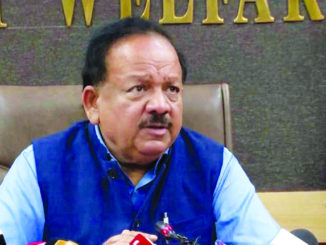
WASHINGTON (TIP): The United States may well have subscribed to Pakistan’s policy of “bad terrorists” (from its Afghan front, who mostly attack Pakistan and US) versus “good terrorists” (from West Punjab, who mostly attack India).
A defence authorization bill signed by President Barack Obama last week that provides for $1 billion in aid to Pakistan in 2015 conditions it on Islamabad taking steps to disrupt the Haqqani Network and eliminating safe havens of al-Qaida and Tehrik-i-Taliban Pakistan.
However, it makes no mention of the Punjab-centric terror groups such as the Laskar-e-Taiba (LeT) aka Jamaat-ul-Dawa (JuD), Lashkar-e-Jhangvi (LeJ) and others that are considered proxies of the Pakistani state.
A review of the 1640-page text of S.1847, formally known as the Carl Levin and Howard P ‘Buck’ McKeon National Defense Authorization Act for Fiscal Year 2015, shows US emphasis on calling Pakistan to account for terrorist activity on its western flank, mainly through the Taliban, which impacts the US drawdown in Afghanistan.
It makes the $1 billion US aid contingent on Pakistan taking steps that have “demonstrated a commitment to ensuring that North Waziristan does not return to being a safe haven for the Haqqani network.” It also seeks a description of any strategic security objectives that the US and Pakistan have agreed to pursue and an assessment of the effectiveness of any US security assistance to Pakistan to achieve such strategic objectives.
But missing from the legislation is any concern, let alone any conditions, about Pakistan’s fostering of the Punjabi terror groups such as LeT that not only attacked Mumbai on 26/11 (an incident in which six Americans were also killed), but also the Lashkar-e-Jhangvi, a sectarian outfit that has killed hundreds of Pakistani Shias.
Both groups are patronized by Pakistan’s military and political establishments, which derive their power from the country’s heartland of west Punjab, much like the terror groups themselves.
A charitable explanation for the legislative oversight (or lack of it) maybe to take into account the broad and fleeting reference to “other militant extremist groups” in the text of the legislation. But in a remarkable coincidence, the Pakistan establishment began freeing its so-called “good terrorists” from Punjab even as President Obama signed the defense authorization bill on December 19. The easing up also followed the Pakistani army chief Gen Raheel Sharif’s visit to Washington DC last month.
In a series of moves demonstrating the Pakistani establishment was easing up on its own terrorist proxies in return for acting on US concerns, the Pakistani courts first released 26/11 planner Zaki-ur Lakhvi from prison, temporarily holding him back following Indian outrage; Islamabad then dawdled over filing replies in court in the case against JuD chief Hafiz Mohammad Saeed and his deputy Hafiz Abdur Rehman Makki, saying it is yet to get response to its questions from the US; most recently, it released LeJ head Malik Ishaq, who is accused of scores of sectarian murders inside Pakistan, before extending his incarceration for two weeks following outrage within Pakistan.





Be the first to comment